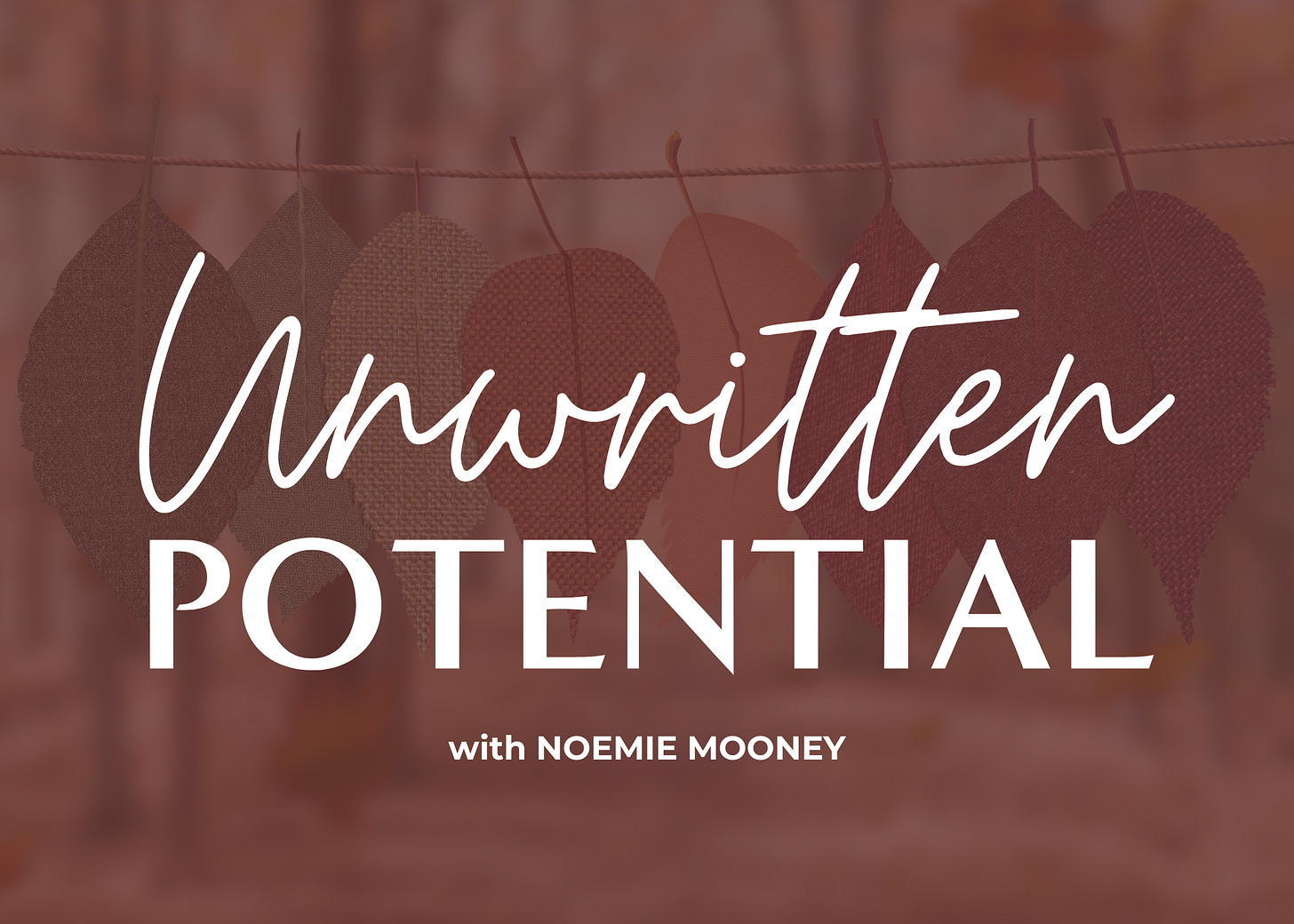Day 4: The Art of Not Believing Every Thought
September Rentrée Series
🍂 Welcome to the September Rentrée!
Every weekday this month, you’ll get one bold, bite-sized piece to spark reflection, shift your habits, and help you design a life that feels good in real life.
1 month. 20 bold truths. A life-changing September.
In France, la rentrée (the return) is a national event. It’s about fresh routines, new ideas, and intentional renewal. And that’s exactly the energy we’re bringing here.
Your brain has one job: keep you alive.
Unfortunately, it's not interested in your happiness, your dreams, your purpose, or whether you feel fulfilled.
It just wants you breathing.
So it has a negativity bias. It's wired to spot problems, not possibilities.
It whispers that you're not ready. That you’re behind. That you'll embarrass yourself. That everyone else has it figured out and you're the only one struggling.
Your brain treats giving a work presentation like you're about to bungee jump. Because it doesn't know the difference between giving a presentation and running from an actual predator.
Same panic response, but obviously totally different stakes
This is why you have thoughts like:
"I'm terrible at this"
"Everyone will judge me"
"I should wait until I'm more prepared"
"I don't belong here"
Here's what your brain is actually doing: it's running ancient survival software on modern problems.
The good news? Once you know your brain has this bias, you can start catching it in the act.
Psychologists call these biased thoughts "cognitive distortions", systematic errors in thinking that keep us small, scared, and stuck.
The most common ones:
All-or-Nothing Thinking: "If I'm not perfect, I'm a failure." Reframe: "Progress beats perfection. I'm learning as I go."
Mind Reading: "They think I'm incompetent." Reframe: "I have no idea what they're thinking. Let me focus on what I can control."
Fortune Telling: "This will definitely go badly." Reframe: "I don't know how this will turn out. That's what makes it interesting."
Catastrophising: "If this doesn't work, everything will fall apart." Reframe: "Even if this doesn't work, I'll figure out my next move."
The moment you catch your brain's negativity bias, you hit that choice point again. You can believe the biased thought, or you can question it.
Mental flexibility is like a muscle. The more you use it, the stronger it gets.
Start small. Pick one recurring thought that you know isn't fully true. Maybe it's "I'm not creative" or "I'm bad with money" or "I always mess things up."
Now ask yourself: What would I do differently if I stopped believing this thought?
That's your roadmap right there.
Quick note: If negative thoughts feel overwhelming or persistent despite your best efforts, consider talking to a counsellor. Sometimes our brains need professional backup, and that's totally normal.
Do this today: Write down one biased thought your brain offers you regularly. Reframe it using the examples above. Notice when it shows up today and interrupt it with your reframe.
Ask yourself: What's one recurring thought you know isn't fully true? How would you act differently if you stopped believing it?
The payoff: Question the bias, change the story, design your reality.
Your brain will keep trying to protect you. But you get to decide what thoughts deserve your attention.
Not every thought is true. Not every fear is real. Not every worry deserves your energy. You're not at the mercy of your mind. You're the designer of your experience.
With love,
Noemie
If today's post resonated, subscribe free to get the rest of Your September Rentrée series: 20 days of bold truths to design your wellbeing.




Great post!!
My mediation teacher always says “you can always begin again”
Great post